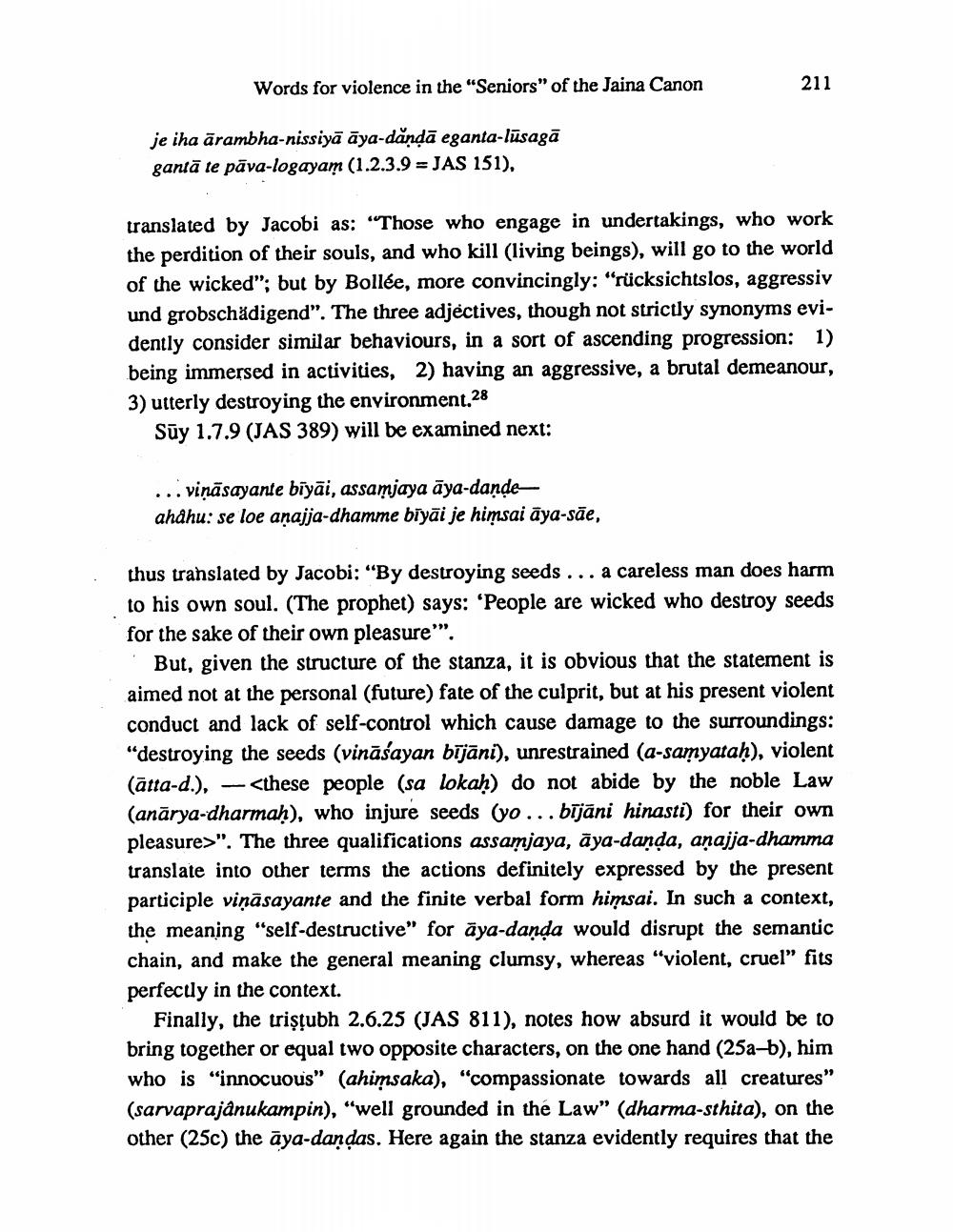________________
Words for violence in the "Seniors" of the Jaina Canon
211
je iha ārambha-nissiyā āya-dăndā eganta-lūsagā gantā te pāva-logayam (1.2.3.9 = JAS 151).
translated by Jacobi as: “Those who engage in undertakings, who work the perdition of their souls, and who kill (living beings), will go to the world of the wicked": but by Bollée, more convincingly: "rücksichtslos, aggressiv und grobschädigend". The three adjectives, though not strictly synonyms evidently consider similar behaviours, in a sort of ascending progression: 1) being immersed in activities, 2) having an aggressive, a brutal demeanour, 3) utterly destroying the environment.28
Sūy 1.7.9 (JAS 389) will be examined next:
... viņāsayante bīyāi, assamjaya āya-dandeahahu: se loe anajja-dhamme bīyāi je himsai āya-sāe,
thus translated by Jacobi: “By destroying seeds ... a careless man does harm to his own soul. (The prophet) says: 'People are wicked who destroy seeds for the sake of their own pleasure"".
But, given the structure of the stanza, it is obvious that the statement is aimed not at the personal (future) fate of the culprit, but at his present violent conduct and lack of self-control which cause damage to the surroundings: "destroying the seeds (vināśayan bijāni), unrestrained (a-samyataḥ), violent (ātta-d.), -<these people (sa lokah) do not abide by the noble Law (anārya-dharmaḥ), who injure seeds (yo... bijāni hinasti) for their own pleasure>". The three qualifications assamjaya, āya-danda, anajja-dhamma translate into other terms the actions definitely expressed by the present participle viņāsayante and the finite verbal form himsai. In such a context, the meaning "self-destructive" for āya-danda would disrupt the semantic chain, and make the general meaning clumsy, whereas “violent, cruel” fits perfectly in the context.
Finally, the triştubh 2.6.25 (JAS 811), notes how absurd it would be to bring together or equal two opposite characters, on the one hand (25a-b), him who is "innocuous" (ahiņsaka), "compassionate towards all creatures" (sarvaprajânukampin), "well grounded in the Law" (dharma-sthita), on the other (25c) the āya-dandas. Here again the stanza evidently requires that the




